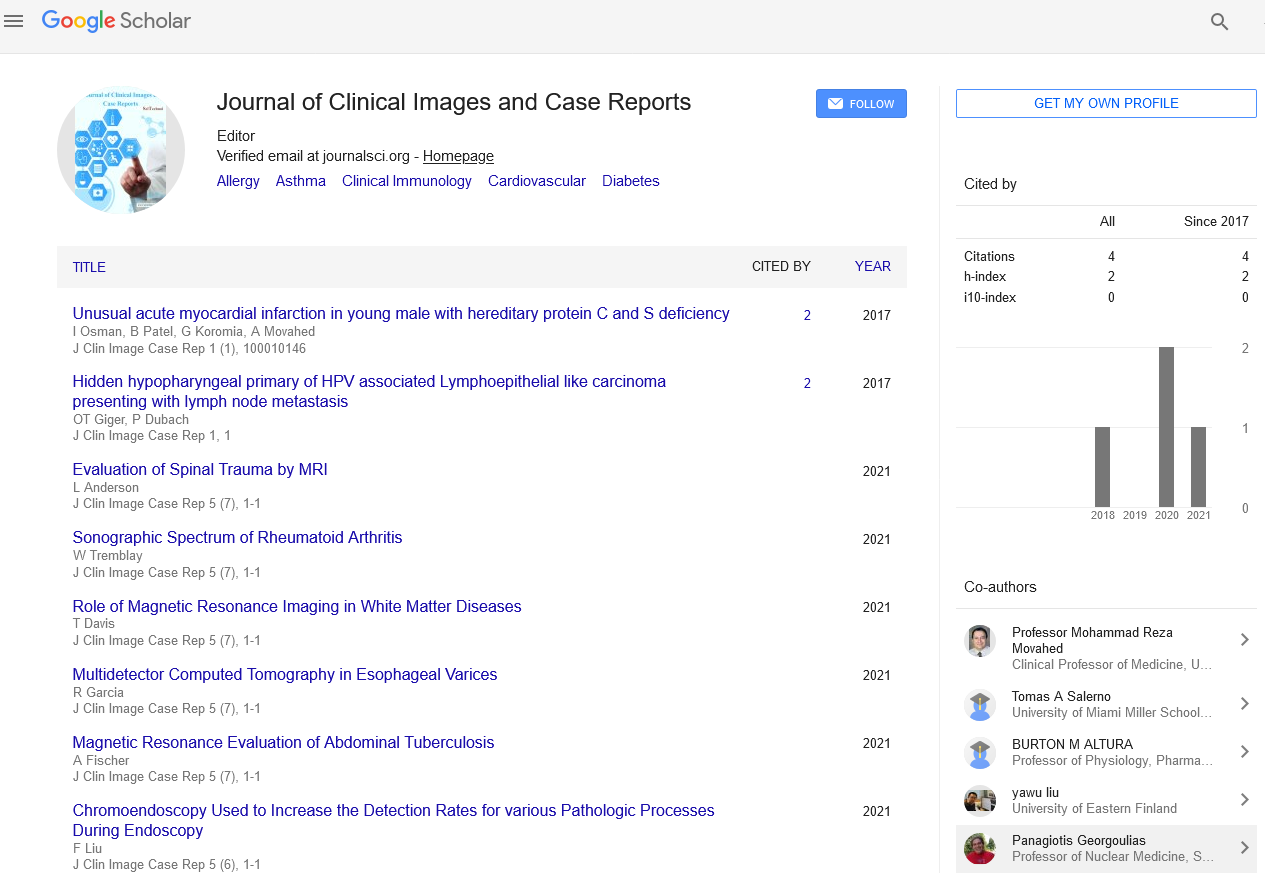Opinion Article, J Clin Image Case Rep Vol: 7 Issue: 1
Cancer Science: The Complexities of Cancer Research
David Wismer*
Department of Epidemiology, University of Washington, 3980 15th Avenue NE, Seattle, Washington 98195, United States
*Corresponding Author: David Wismer
Department of Epidemiology, University
of Washington, 3980 15th Avenue NE, Seattle, Washington 98195, United States
E-mail: wismerdavid@gmail.com
Received date: 27 January, 2023, Manuscript No. CICR-23-95474;
Editor assigned date: 30 January, 2023, PreQC No. CICR-23-95474(PQ);
Reviewed date: 14 February, 2023, QCNo CICR-23-95474;
Revised date: 21 February 2023, Manuscript No. CICR-23-95474(R);
Published date: 28 February 2023 DOI: 10.4172/CICR.1000235.
Citation: Wismer D (2023) Cancer Science: he Complexities of Cancer Research . J Clin Image Case Rep 7:1.
Description
Cancer is a devastating disease that affects millions of people worldwide. Despite significant progress in cancer research, it remains a leading cause of death globally. Cancer science is a multidisciplinary field that encompasses various aspects of cancer biology, diagnosis, treatment, and prevention. In this article, we will explore the complexities of cancer science, including its history, current state, challenges, and future prospects.
The history of cancer science dates back to ancient times when cancer was first described by the Egyptian physician Imhotep in 2625 BCE. Over the centuries, our understanding of cancer has evolved through observations, experiments, and discoveries. In the 19th century, the French surgeon Dr. Jean Louis Petit proposed the concept of metastasis, which revolutionized our understanding of cancer spread. The discovery of X-rays by Wilhelm Conrad Roentgen in 1895 paved the way for the development of cancer imaging techniques. In the 20th century, groundbreaking discoveries, such as the identification of oncogenes and tumor suppressor genes, led to the development of targeted therapies for cancer treatment.
Current state of cancer science
In recent years, cancer science has made significant progress in understanding the underlying biological mechanisms of cancer development and progression. Advances in genomics, proteomics, and other omics technologies have facilitated the identification of key molecular alterations that drive cancer. High-throughput screening approaches have allowed the discovery of novel anticancer drugs and immunotherapies, which have revolutionized cancer treatment. In addition, precision medicine, which involves tailoring cancer treatment based on individual patient's genetic makeup, has emerged as a promising approach for personalized cancer care. Cancer immunotherapy, including immune checkpoint inhibitors and Chimeric Antigen Receptor (CAR) T-cell therapy, has shown remarkable success in treating certain types of cancers.
Challenges in cancer science
Despite the significant progress, cancer science faces several challenges. One of the major challenges is the heterogeneity of cancer, as each tumor is unique and may require different treatment strategies. Tumor heterogeneity can arise due to genetic mutations, epigenetic alterations, and tumor microenvironment factors, making cancer difficult to target effectively. Another challenge is the development of drug resistance, where cancer cells evolve mechanisms to evade the effects of anticancer drugs. The complex interplay between cancer cells and the immune system poses additional challenges in developing effective immunotherapies. Additionally, the high cost of cancer research and treatment, ethical concerns, and regulatory issues also pose challenges in advancing cancer science.
Future prospects in cancer science
Despite the challenges, cancer science holds great promise for the future. Advances in technology, such as artificial intelligence, machine learning, and big data analytics, are being utilized to improve cancer diagnosis, prediction, and treatment outcomes. The development of liquid biopsies, which involve non-invasive testing of cancer-related genetic mutations and other alterations in blood samples, may revolutionize early cancer detection and monitoring. The use of gene editing technologies, such as CRISPR-Cas9, may enable precise targeting of cancer cells and correction of cancer-causing genetic mutations. Immunotherapies, including CAR-T cell therapies and cancer vaccines, are being further optimized to overcome challenges and achieve better clinical outcomes. Furthermore, collaborative efforts among researchers, clinicians, and industry partners are being fostered to accelerate the translation of basic cancer research into clinical practice.
Conclusion
Cancer science has come a long way in understanding the complexities of cancer and developing new treatment approaches. However, challenges persist, and there is still much to learn and accomplish in the field of cancer research. With continued advancements in technology, collaboration among stakeholders, and interdisciplinary approaches, cancer science holds great promise for improving cancer prevention, diagnosis, and treatment outcomes.
 Spanish
Spanish  Chinese
Chinese  Russian
Russian  German
German  French
French  Japanese
Japanese  Portuguese
Portuguese  Hindi
Hindi 